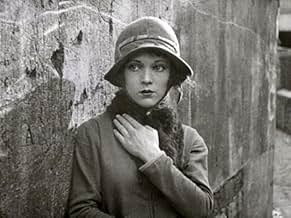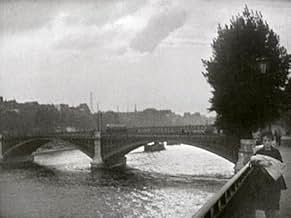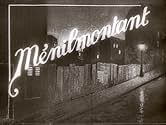Poverty, disillusion, and yet grace graces the screen when Nadia Sibirskaya nods to the old man who offers her some food to chew. That scene, that means her social grace, brought me tears and elated me at once - miracles, oh yes, do and do happen and move.
One should note that the old man does not reciprocate, in fact does not look at her at all, and this marks Kirsanoff's extraordinary finesse: if there was some kind of "communication" between the two, THIS would be melodramatic; for I do not think this film is a melodrama, at least the way we have come to mean one. To deny that the story is something that could have "happened", is to deny the film's class and émigré conscience.
On the other hand I am not sure I would claim, as another reviewer did, that this is Zola-like; we would then be a bit far from "Menilmontant"'s drastic, dislocated lyricism.
Watch the cutting close-ups the two times Sibirskaya's eloquent face witnesses a violent scene: the camera, a bit dislocated each time, and unafraid to jump and shut transitive seconds.
Watch the scene where she strongly contemplates something and starts descending the steps to the river: there is a sense of menace and imminent loss, I am not sure I ever witnessed before in a film: this is film-making on the heights; as is the camera work which frames hesitant feet on the steps, and hushes astonishingly their turning round.
Watch the protagonist's face after she arguably loses her virginity: inscrutable and fascinating, not allowing us truly tell if the vision of her wandering in the woods is one of innocence lost or burgeoning sexuality. But there is, that is a visceral sense of feminine enjoyment, perhaps close to a Balthus painting mood.
At the end one is left with a sense of bifurcation: with sisters reconciled, we are left with a confusing and not redeeming crime. We don't know who or why exactly and if the girl involves herself out of vengeance, private reasons or what you will; that makes it all the more unsavory and artistically right.
Then the camera looks disjointedly up into the Parisian sky, and hands resume their work of artificial bouquets; yes, the film seems to suggest, this is all what one is left with, artificial bouquets and handiwork.
Two sisters, two deflorations, two crimes, twice the work of flowers: the work of the two Kirsanoffs genial, amazing sensibilities.






